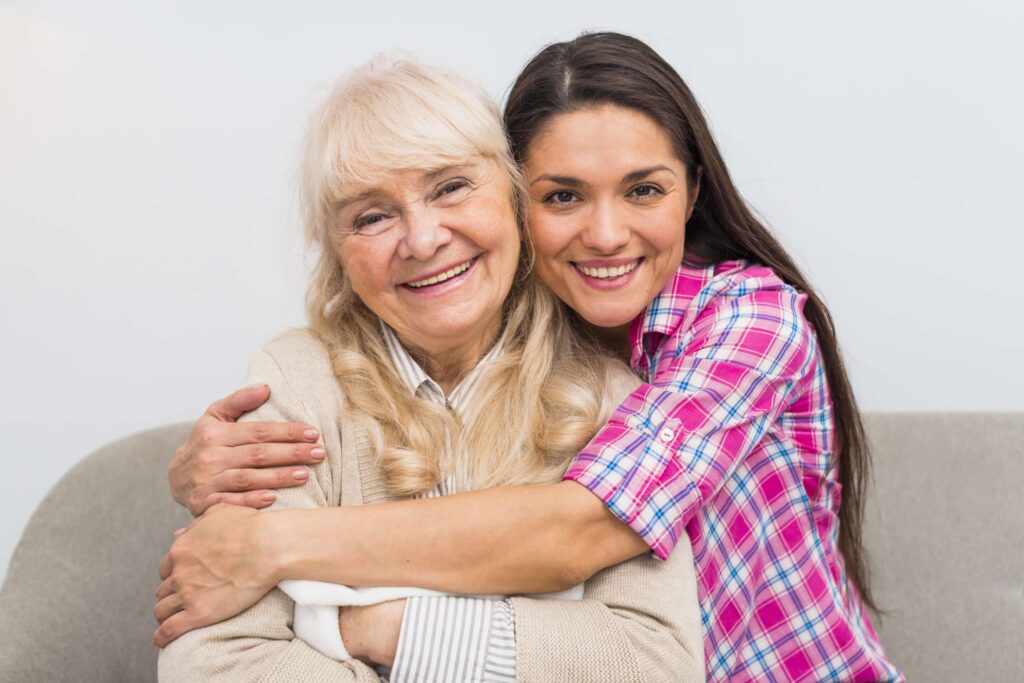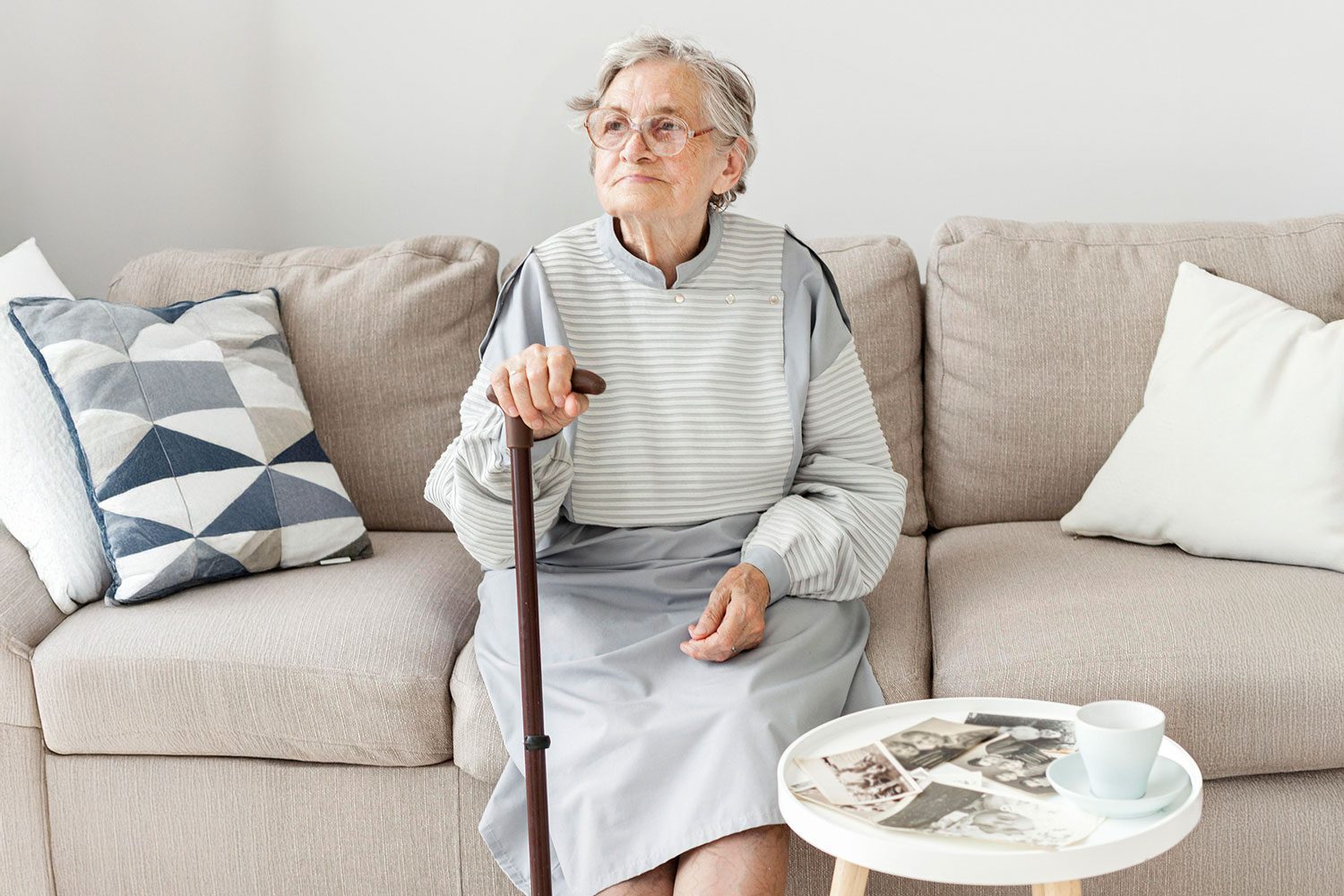As families gather for the holidays, it’s common for changes in the health and wellbeing of older relatives to become apparent – especially if it’s been a while since you’ve all been together. Here are 12 things you should notice about your elderly loved ones during the holiday season.

1. Has their mobility declined?
Watch how they move around. Are they steady on their feet, or do they seem fearful of falling? Look for signs of muscle weakness, unsteadiness, difficulty getting in and out of a chair, or difficulty climbing stairs.
2. Are they getting forgetful?
Are they more forgetful than usual? Do they have trouble following conversations or remembering details? These could be signs of dementia or other cognitive decline.
Read more: Aged care options for people with early signs of dementia
3. Can they manage household tasks well?
If household chores have become overwhelming for your loved one, you may notice that the house is untidy, there’s a buildup of dishes or laundry, or that they aren’t completing essential tasks such as paying bills or making sure the bins are taken out each week.
Struggling seniors may be able to receive support at home from a government-funded Home Care Package, or the Commonwealth Home Support Program.
Find out more here: Home Care Package Guidelines – Aged Care Decisions
4. Are they taking medications correctly?
Many elderly people struggle to manage their medicines and supplements. Is your loved one remembering to take their medication? Do they always take the correct dosage?
If they are not attending medical appointments, they seem unwell more frequently, or show signs of dehydration, they may have an underlying health condition that needs to be investigated.
5. Are they eating properly?
Notice their meal patterns. Are they eating enough, and are they following a balanced diet?
Malnutrition is common in older adults and can lead to a variety of health problems. If you notice that your elderly loved one has lost weight, often say they aren’t hungry, or they seem to avoid eating altogether, it might be a good idea to help them prepare meals or arrange for a regular meal delivery service.
6. Is their home environment comfortable and safe?
Check their home for clutter, and tripping hazards like rugs, electrical cords and steps. Make sure inside and outside lighting is adequate, and the temperature of their house is comfortable year-round.
Home safety devices such as handrails and ramps are often used to help older people remain in their homes for longer. Could an emergency alert system enhance their confidence and safety?
7. How is their personal hygiene?
Notice whether they are keeping up with personal hygiene, including bathing, brushing teeth, and grooming. Difficulty with these tasks can signal mobility issues, cognitive decline, or depression.
If they are unable to manage daily personal care, support from a home care worker or nurse may be necessary.
8. Can they get out and about?
Check that your loved one has reliable transportation for errands, doctor appointments, and social activities. Many elderly people stop driving due to safety concerns. Lack of transportation can lead to isolation, feelings of helplessness and missed medical care.
9. Do they seem emotionally stable?
Look for signs of depression or anxiety, such as mood swings, withdrawal, irritability, or lack of interest in activities they once enjoyed. The holidays can be a time of reflection and can sometimes bring up feelings of sadness or loss.
Depression and anxiety are common among older adults and may be linked to physical health problems, medications, or life changes such as losing a spouse or living alone. Mood changes, including increased irritability, anxiety, or confusion, can indicate that something is wrong.
10. Are their finances in order?
Take a moment to ask if they are keeping up with their finances. Are they paying bills on time and are they happy to discuss important legal matters like power of attorney.
If you notice unopened bills, overdue payments, or if they are confused about financial or legal matters, your loved one may need help to manage their finances.
Scams that target the elderly are also common, so keep an eye out for unusual financial behaviour, like frequent withdrawals or unfamiliar purchases.
11. Have they been in and out of hospital?
Has your loved one been in hospital recently? Do they have complex medical needs? If they are struggling to successfully manage conditions such as diabetes or high blood pressure, or if they have mobility issues, they made need regular assistance from a home care provider or health professional.
12. Are they socially connected?
Enquire about their social life. Do they have friends, family or neighbours they spend time with regularly. Do they participate in community or group activities? What are their hobbies? Are there specific social connections they wish to build or maintain?
What do I do next?
Holiday get togethers offer the perfect opportunity to make these important observations and speak to elderly loved ones about their health and wellbeing.
Spending time together during the holidays is often a turning point for family members, prompting them to take steps to ensure their loved ones are well supported, safe and happy in their homes.
Could a Home Care Package help?
We all want to live our best lives as we age. The Australian Government funds Home Care Packages to support seniors to safely stay in their homes for as long as possible.
What is a Home Care Package?
A Home Care Package provides a set amount of money that can be used to fund a range of services and products to directly help Australian seniors remain in their homes.
Read more: Aged Care Decisions How Home Care Packages Work
What can a Home Care Package pay for?
Funds can be used for a huge range of supports and services including personal care, household chores, garden maintenance, home delivered meals, transport, mobility aids, nurse visits, allied health services and social support and companionship.
Read more: What a Home Care Package can pay for
Who is eligible?
Australian seniors aged 65+ (50+ for Aboriginal or Torres Strait Islander people) can apply for a Home Care Package if they require support at home. You can check if you’re eligible by using My Aged Care’s online eligibility checker.
Read more: Who is eligible for a Home Care Package?
How can I apply for a Home Care Package?
The first step is to register with My Aged Care and request an ACAT assessment. You can do this by calling My Aged Care on 1800 200 422 or using this online form: Apply for an aged care assessment | My Aged Care
Read more about ACAT assessments: ACAT Assessment Guide – how to apply for aged care funding
How do I find a home care provider?
This is where Aged Care Decisions can assist. Our 100% FREE, 100% independent aged care matching service can take your location, care needs, budget and personal preferences, and match you with a provider that perfectly suits your needs.
We can save you time and greatly reduce the stress of navigating aged care – and finding a good provider.
Here’s how our FREE service works:
Contact Aged Care Decisions now to receive a free, no-obligation, personalised aged care Options Report.








